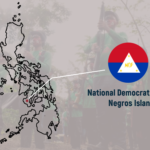
Zimbabwe will hold elections on August 23. Among all the candidates, the ones with the best chances of being elected are outgoing President Emmerson Mnangagwa and lawyer Nelson Chamisa, a candidate for the country’s largest opposition party, the Citizens for Change Coalition (CCC).
A turbulent election is expected, with previous denunciations of possible electoral fraud and potential clashes between discontented popular sectors and the repressive apparatus of the government.
Zimbabwe, like many African countries, is going through a deep economic crisis, with hyperinflation that has further deepened food insecurity, unemployment and social inequality.
The country returns to democracy in the 2018 elections, which were held a year after Robert Mugabe left power, which plunged Zimbabwe under an authoritarian regime for 40 years. These are the second free elections that will be held in the country, in which Mnangagwa and Chamisa will face each other for the second time.
#ZimDecides2023: The Zimbabwe Electoral Commission has today published information on ballot papers for the August 2023 general elections after it was sued by CCC. Fidelity Printers did printing:
Presidential – 7,126,600
MP – 7,098,750
Council – 6,854,250 pic.twitter.com/RDGV1sImTp— Daily Times Zimbabwe (@DailyTimesZim)
August 18, 2023
“This time the elections seem different from the previous ones, in the sense that the leaders speak the language of peace and encourage people to go and vote peacefully, without inciting hatred. The result is that so far we have not heard of many incidents. This does not mean that the violent episodes have completely stopped. Last week, a man in one of the municipalities of Harare was lynched to death and the closer we get to the date of the vote, the more tense the atmosphere becomes,” explains Tryvis Moyo, Secretary General of the Episcopal Conference of Zimbabwe.
However, the political situation seems to be heading in a different direction. Both candidates make unfriendly speeches to their opponents, especially the situation is tense between Mnangagwa and Chamisa.
Both candidates accuse each other of carrying a controversial political propaganda, in which they can promise help from the United States to change votes, as Mnangagwa has accused his opponent.
“In a context of great social tensions, with poverty and many problems, it takes very little to trigger any confrontation. Leaders should not say anything that can be misinterpreted by their followers,” the religious leader insists.
The Zimbabwe the Christian church is an institution with a strong social influence, which has allowed it throughout history to mediate in matters of great importance for the country. The country has 75 percent of its population baptized in different evangelical denominations, in addition to 6 percent under the Catholic Church.
“The Churches are constantly facilitating paths of peace in Zimbabwe and regularly meet with the political leaders of the different parties before, during and after the electoral process. For us, this is a decisive function that makes our role of convincing leaders and their followers credible and always finding ways that unite, without dividing,” says Tryvis Moyo in this regard.



